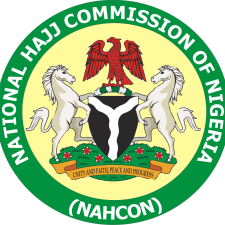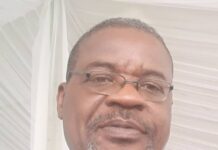In a few days, the National Hajj Commission of Nigeria (NAHCON) will start the transportation of Nigerian intending pilgrims to the Holy lands of Makkah and Madinah in Saudi Arabia, for the performance of the Hajj, the fifth pillar of Islam.
The annual activity is mandatory on all adult Muslims with sound mind and financial capacity to perform it, at least once in a lifetime.
Generally, the services to be performed by NAHCON are seen as spiritual and temporal as they must abide by the Constitution of the country and also meet the criteria of the faith.
The task before NAHCON is fulfilling the service agreement the Federal Government has with Nigerians as succinctly articulated in the SERVICOM charter, whether within or outside the country.
SERVICOM is an acronym for Service Compact with all Nigerians. It was established in 2004 as the outcome of a Three-day Special Presidential Retreat on Service Delivery.
The responsibility of SERVICOM is to ensure provision of quality service to the people.
It is also expected to set out the entitlement of the citizens, ensure good leadership, educate the citizens (customers) on their rights and to empower public officers to be alert to their responsibilities of providing improved, efficient, timely and transparent services.
Educating the citizens (customers) to their rights has always been a major challenge encountered in the course of carrying out these responsibilities.
Education reduces the communication gaps likely to lead to misunderstanding and friction during the course of providing services by government agencies.
To make for a robust communication and minimise gaps, NAHCON has always had a robust media team in each of its yearly operations.
The team always liaise between the pilgrims and NAHCON officials which enhances understanding between them before, during and after the exercise.
A large percentage of the challenges of Hajj can be attributed to flight schedules, take-off time and returning dates.
Other challenges include feeding and accommodation arrangements in Madinah, Makkah and Mina.
These duties are shared responsibilities between NAHCON and respective State Muslim Pilgrims Welfare Boards.
The Hajj media team has been able to handle these challenges by tasking relevant authorities on their responsibilities.
Analysts say that this must be maintained by the team during the 2023 pilgrimage.
They say that the media team should, at all times, serve as the watchdog of the exercise and all hands must be on deck to ensure that it played this role effectively and efficiently.
They note that the tradition of having a robust media team must be upheld to ensure that pilgrims have effective channels of communication between them and Hajj officials at both states and federal levels.
The media and government officials must therefore ensure that the pilgrims, generally referred to as guests of Allah, are properly taken care of by those charged to provide services to them, and which the pilgrims have paid for.
This should be done unreservedly to not only attain the boundless grace of the Almighty, but also satisfactorily deliver the service to the pilgrims. (NAN)




